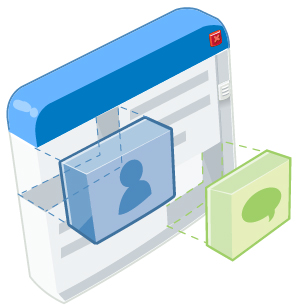Should Microsoft join or fight the OpenSocial?

In all the conversation this week about Google's OpenSocial launch, Microsoft's own social network -- Windows Live Spaces -- is absent from just about every blog post, article and discussion.

One Softie, Windows Live team member Dare Obasanjo, described the OpenSocial is pure and simple lock-in and makes the Google of today look like the Microsoft of old. Charles Fitzgerald, General Manager of Platform Strategies, says the least-common-denominator platform approach, draped in open-source clothing, won't be a positive for anyone but the smaller social-networking players.
I don't agree with either of these guys. This is old-school thinking.
What would happen, instead, if Microsoft -- whose own dev.live.com story is slowly evolving and so far has yet to take the development world by storm -- decided to back OpenSocial and allowed OpenSocial developers' apps to run seamlessly inside the Windows Live Spaces "container"? Rather than building up Windows Live services as yet another walled-garden platform, akin to the Windows platform, why not take a chance and be a real part of the social?
To many Softies this may sound like treason. How will profits be made if Microsoft doesn't lock in its platform loyalists? How can Microsoft combat Google if it is backing Google's play?
If Microsoft did take the surprising step of joining OpenSocial, the move wouldn't be completely unprecedented. Over the course of a few years, Microsoft has decided to experiment with releasing some of its code under "treasonous" open-source licenses...so who knows? Maybe Chief Software Architect Ray Ozzie will give the Live team the green light to try thinking different.
What do you think: Should Microsoft try to beat the OpenSocial squad? Or surprise everyone and join them?